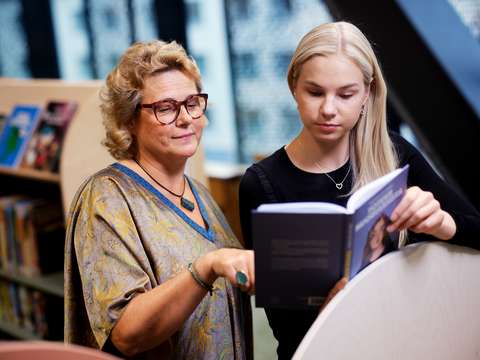Books provide peer support

If a child or young person is having a difficult time, one way to seek help is to read books. They provide peer support in the twists and turns of life.
In challenging life situations, the brain of someone who reads a lot is much more prepared for the situation than that of a person who has not read. According to brain research, the brain does not distinguish between whether a thrilling thing is being read or if it really happens.
“The brain thinks that it is really happening. That is why reading is extremely important, stimulating and significant for emotional skills,” says library pedagogue and bibliotherapy instructor Pirkko Ilmanen.
Anyone who reads a lot recognises the situation in which they feel that the main character is similar to themselves or at least the character has experienced the same things as they have.
“If the reader feels something strongly, they have achieved an emotional response, which means that the event in the book corresponds to the reader’s emotions. Literature can therefore provide comfort and peer support,” says Ilmanen.
Matilda Levoranta, a 14-year-old from Espoo, wanted to highlight things that she thought were important in the world of young people and found writing as a channel for this. The novel Totuus nuoruudesta (The Truth About Youth) deals with young people’s mental health problems, pressures relating to appearance, school stress, performance anxiety and obsessive-compulsive disorder (OCD).
“Important mental health issues are not discussed through a young person’s voice because young people themselves do not open up much about them. I have not personally experienced everything in the book, but someone around me has or I have heard about it. I wanted to write as authentically as possible,” says Levoranta.
The first-time author, who received the Mayor of Espoo’s Encouragement Award this year, feels that she can offer peer support specifically to young people. Based on the feedback, the book has helped readers cope.
“Young people have felt that they are not alone with their problems and that they do not have to be ashamed if they have mental health problems,” Levoranta says.
Text: Marjo Tiirikka
This article has originally been published in the Espoo Magazine 3/2023.
Read other articles in the Espoo Magazine.